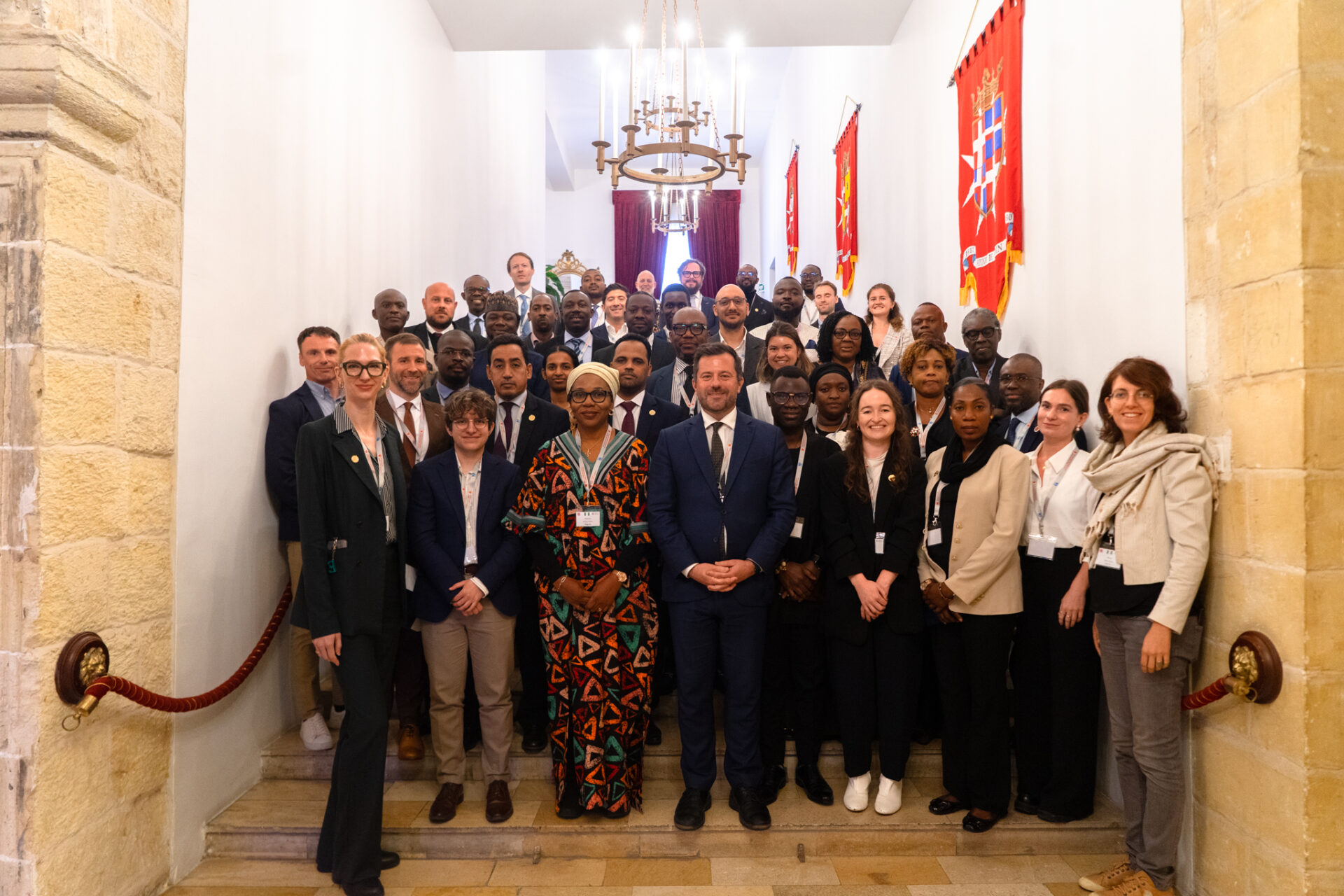
On 7 April 2025 the International Institute for Justice and the Rule of Law (IIJ), in partnership with the Global Internet Forum to Counter Terrorism (GIFCT) and with the generous support of the Federal Republic of Nigeria, organised a multi-sector workshop on countering technology-related terrorism in West Africa in Valletta, Malta. This was the first programme the IIJ organised under a multi-year grant from the government of Nigeria that supports IIJ activities in Nigeria and the broader West, East and North Africa regions through criminal justice trainings on a broad range of terrorism-related issues. The IIJ is immensely grateful to Nigeria for its trust, collaboration and ongoing support of our mission and activities.
The programme brought together criminal justice practitioners, policymakers and cybersecurity experts from Benin, Ghana, Malta, Mauritania, Nigeria and Togo, as well as representatives from civil society, research institutes and the private sector. Discussions centred on addressing terrorism and violent extremism in digital spaces, including through exploring the current online and offline terrorism threat landscape in West Africa, analysing relevant national legislative and regulatory frameworks, collaborating with the private sector on joint responses and engaging with civil society to ensure approaches are responsive to the realities on the ground.
Mr. Steven Hill, Executive Secretary of the IIJ, Dr. Erin Saltman, Senior Director for Memberships & Programs at GIFCT and Ms. Nkiruka Jones-Nebo, Director for International Criminal Justice Cooperation at the Ministry of Justice of the Federal Republic of Nigeria, opened the workshop. All speakers emphasised terrorist actors’ increasing and continuously evolving exploitation of digital technologies and the need for agile and adaptive responses to counter this shifting threat effectively. Inter-agency collaboration within governments and internationally, as well as partnering with stakeholders from private industry and civil society, are central in this endeavour.
The first session provided overviews of the offline and online terrorism landscape in West Africa through four different lenses: a cross-regional perspective, the viewpoint from Nigeria, trends in online terrorism financing and new research on the link between gaming and terrorism in the region. The second session examined legal and regulatory frameworks for countering terrorism and violent extremism online, including from Nigeria, Ghana and Benin, supplemented by perspectives from Kenya to draw in cross-continental developments. In the third session, contributions focused on public-private collaboration to address terrorist exploitation of online spaces. GIFCT’s approach to bring together technology companies and governments, a participating government’s collaboration with a technology company to advance the investigation of illicit crypto transactions, and Nigeria’s engagement with the private sector all served as important examples on how public-private partnerships can be built, maintained and used for good. The final session addressed collaborative programmes to create resilience and to counter violent extremism online with valuable insights and case studies shared by civil society organisations working in this space to ensure that a multitude of voices form part of the wider dialogue to develop resonant programmes.
This was the first workshop that the IIJ organised jointly with GIFCT, connecting our respective networks to enable the sharing of information and insights among a diverse group of criminal justice practitioners, researchers, and civil society and private sector representatives.
